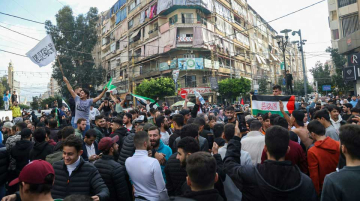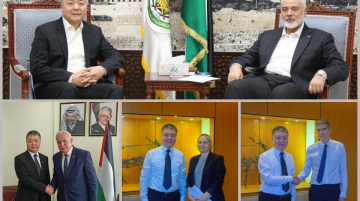Two Chinese families are mourning the loss of their loved ones who were murdered yesterday in a bomb attack in Karachi — the latest incident of militant violence targeting Chinese nationals in Pakistan.
Sunday’s car blast is a painful reminder that Chinese nationals are not immune to the scourge of terrorism that is still far too common in parts of Asia, Africa, and, of course, the Middle East.
The timing of the attack on the Chinese convoy is also notable as it occurred just hours before the one-year anniversary of the October 7th assault on southern Israel by Hamas terrorists who slaughtered 1,195 people and took 251 others hostage.
The events of that day reshaped the world as we know it—not just in the Middle East but also in the U.S., Europe, and even China.
In strictly political terms, the Chinese government has done a phenomenal job in leveraging the crisis to bolster its standing among Arab and Muslim-majority countries around the world while simultaneously hammering the U.S. for its unconditional support of Israel.
In the Middle East and Southeast Asia, among other regions, ample polling evidence demonstrates significant gains in Chinese popularity, often at the expense of the United States, which saw commensurate declines.
Chinese efforts to foster Palestinian reconciliation, Beijing’s forceful defense of Palestinian statehood at the United Nations, and the government’s robust endorsement of Palestinians’ right to use violence against their occupiers have all contributed to a sense among billions of people across the Global South that China is, indeed, on the right side of history.
But reflections on the year since October 7th also expose many of China’s severe shortcomings in the Middle East.
Its diplomats in the region lack the kind of experience, relationships, and linguistic skills to be taken seriously as credible mediators between Israel and its growing list of enemies. That explains, in part, why Chinese “peace initiatives” presented at the UN and elsewhere are basically just retreads of Beijing’s tired, old ideas that it’s been touting for the past decade.
Even more concerning for the Chinese is what happens if this conflict explodes into an all-out regional war. China now relies on Mideast and Persian Gulf countries for a sizable share of its imported energy, and if those supplies are disrupted or the cost of oil skyrockets, as many expect, that could pose a grave challenge to Xi Jinping’s plan to revive the sputtering Chinese economy.
As this expanding conflict now enters its second year, Xi’s desire to position China as a major global power, or even just some kind of alternative to the U.S., is going to be tested in the Middle East.






